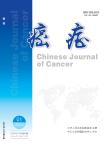International Szent-Gyorgyi Prize for Progress in Cancer Research:basic and translational research recognition Mary-Claire King received the 2016 Prize for her pioneering research that demonstrated the first evidence of genetic predisposition to breast cancer
International Szent-Gy?rgyi Prize for Progress in Cancer Research: basic and translational research recognition作者机构:National Foundation for Cancer Research
出 版 物:《Chinese Journal of Cancer》 (Chinese Journal of Cancer)
年 卷 期:2017年第36卷第11期
页 面:533-536页
核心收录:
学科分类:1002[医学-临床医学] 100214[医学-肿瘤学] 10[医学]
主 题:The National Foundation for Cancer Research The Szent-Gyorgyi Prize Mary-Claire King BRCA1 and genetic testing
摘 要:The Szent-Gy?rgyi Prize for Progress in Cancer Research is a prestigious scientific award sponsored by the National Foundation for Cancer Research(NFCR)-a leading cancer research charitable organization in the United States that supports innovative cancer research globally with the ultimate goal to cure cancer. The coveted Szent-Gy?rgyi Prize annually honors a scientist whose seminal discovery or body of work has resulted in, or led toward, notable contributions to cancer prevention, diagnosis, or treatment; and the discovery has had a high direct impact of saving people s lives. In addition, the prize promotes public awareness of the importance of basic cancer research and encourages the sustained investment needed to accelerate the translation of these research discoveries into new cancer treatments. In 2016, NFCR s Szent-Gy?rgyi Prize Selection Committee was unanimous in its decision to recognize an icon in human disease genetics, Dr. Mary-Claire King, for her pioneering research that demonstrated the first evidence of genetic predisposition to breast cancer. Her proof of existence of BRCA1 gene and its location has made genetic screening for breast and ovarian cancers possible, saving lives of many people who are at high risk with inherited BRCA1 mutations.



